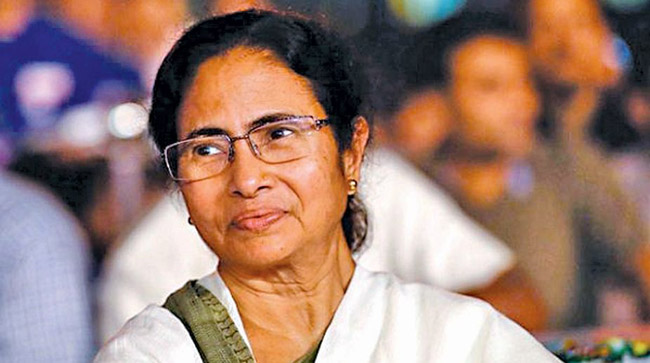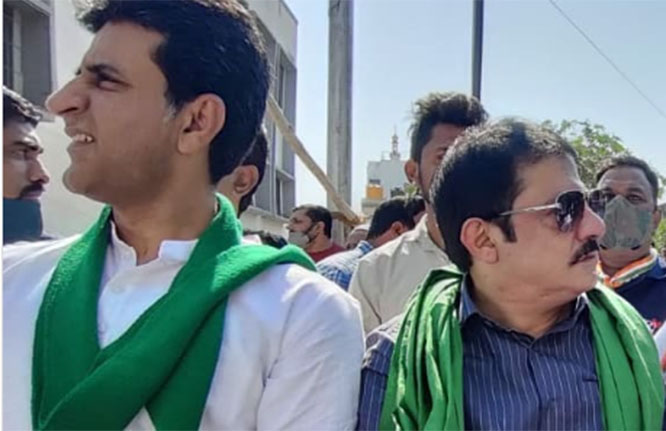
Mamata Banerjee won the Bhabanipur bypoll with a record margin of 58,832 votes, a massive feat for the feisty Trinamool Congress leader.
Bhabanipur is Banerjee's home turf, the seat from which she took the Bengal crown from the CPI(M) in 2011.
The TMC is also ahead in Murshidabad's Samserganj and Jangipur constituencies, where votes are being counted for the assembly elections.
TMC supporters hit streets across the state to celebrate.
On the other side, the state offices of the BJP and the CPI (M) wore a deserted look. Meanwhile, the Election Commission wrote to the chief secretary directing him to prohibit victory celebrations and processions to prevent any incident of post-poll violence.
Tibrewal, on Saturday night, wrote to the Acting Chief Justice of Calcutta High Court Rajesh Bindal, urging him to give orders to the police to take preventive steps to avoid incidents of violence after the declaration of the results.
After Banerjee's defeat in Nandigram, Sovandeb Chattopadhyay, a state minister, vacated the Bhabanipur seat to facilitate her return to the assembly from there. The TMC had won the seat in the April-May assembly polls by a margin of around 28,000 votes.
Key points
1. The Chief Minister won the seat in 2011 and 2016 as well. The seat was vacated for her by state minister Sovandeb Chattopadhyay,
2. Mamata Banerjee, who lost the battle for Nandigram against her close aide-turned-foe Suvendu Adhikari in the April-May assembly elections, had to win an assembly seat before the end of six months to continue as the Chief Minister.
3. Priyanka Tibrewal - a lawyer and a long-time resident of the constituency - was fielded against Ms Banerjee by BJP.
4. Although the 41-year-old lost the recent assembly polls and the 2015 municipal polls, she has become well-known as one of the petitioners in the post-poll violence case against the state government.
5. Mamata Banerjee had contested from Nandigram -- where her agitation had catapulted her to power a decade ago -- as a challenge to Mr Adhikari, who had joined the BJP in the run-up to the election.
6. The challenge was seen to have acted as a tonic for her party. Her defeat in Nandigram was the one big blot on Trinamool Congress's stupendous victory for a third term in face of the BJP's powerful election machine.
7. The Trinamool is also in the lead at Murshidabad's Samserganj and Jangipur seats, where by-elections were held after the deaths of two candidates.
8. In Samserganj, Trinamool candidate Amirul Islam is leading by 3,768 votes after the fifth round of counting. He secured 19,751 votes, while his nearest rival, Zaidur Rahaman of the Congress, got 15,983.
9. Jangipur's Trinamool candidate Jakir Hossain is leading by 15,643 votes after the second round of counting. Mr Hossain secured 25,572 votes, and his nearest rival, the BJP's Sujit Das, got 9,929.
10. After multiple instances of violence during and after the assembly polls, the Election Commission arranged for a three-tier security system, deploying 24 companies of Central forces at the counting centre.







Comments
Add new comment